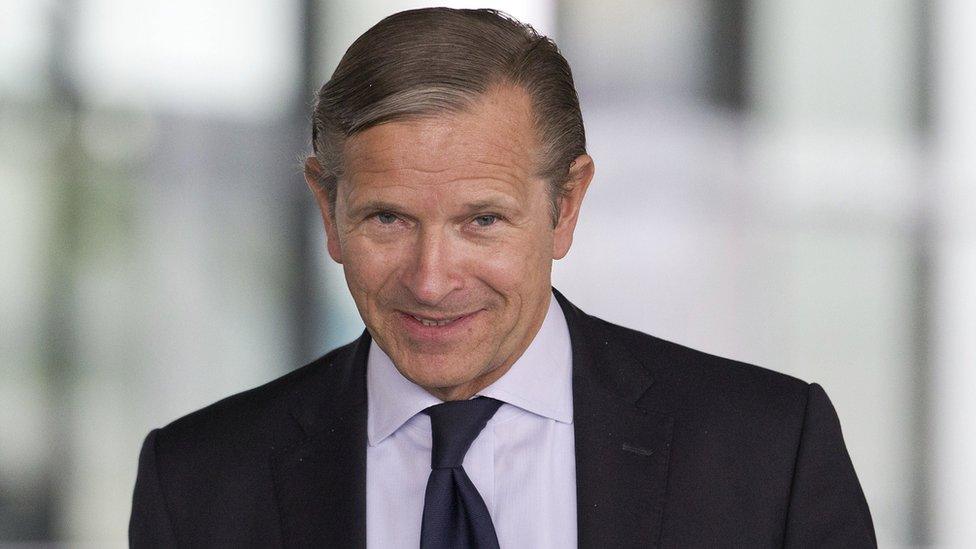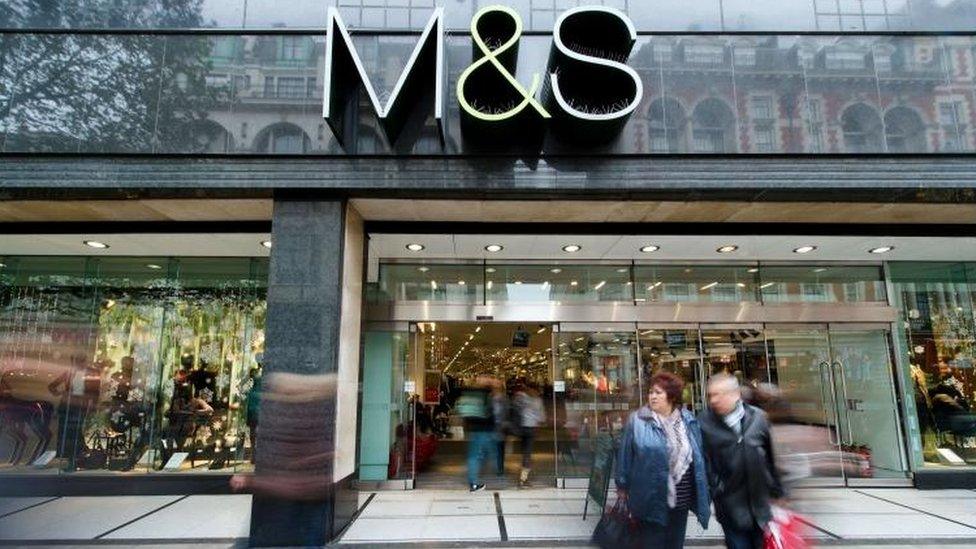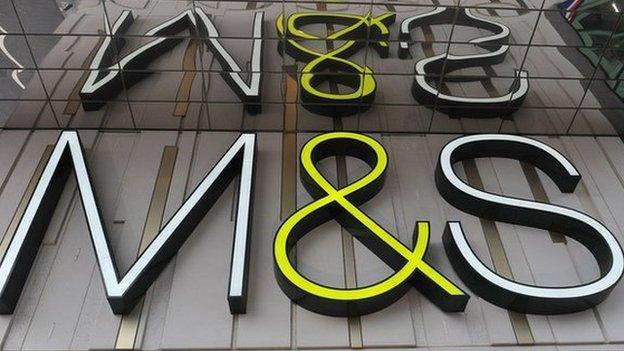Marks and Spencer sees sales fall again
- Published

Marks and Spencer has reported another fall in sales as a revival in its women's fashion range failed to materialise.
Sales of general merchandise, which includes the troubled clothing division, were down by 1.2% for the six months to 26 September.
Clothing accounts for about 40% of sales for the High Street retailer.
Overall like-for-like sales for M&S fell by 0.4% in the UK, although food sales rose by 0.2%.
The retailer said, external underlying profits rose by 6.1% to £284m, but after taking into account one-off items pre-tax profits fell 22.7% to £216m.
Those one-off costs included almost £27m on revamping UK stores and £22m on European store expenses.
M&S said that trading conditions were challenging, with the UK retail sector affected by unseasonal conditions that resulted in high levels of promotions, particularly in the first quarter.
"In the second quarter we took a decision to focus on full price sales and discount less which affected sales performance," the company said.

M&S chief executive Marc Bolland is focusing on improving profit margins
It added that conditions would remain difficult: "Despite some improvement in consumer confidence, market conditions continue to be challenging in both the UK and the international markets."
The company plans to concentrate on increasing food sales, gross margins and cash generation.
M&S said profit margins at its non-food business had risen by 2.85 percentage points. Given the strong competition from other retailers, chief executive Marc Bolland has focused on improving margins and selling fewer items on promotion rather than trying to boost volumes.
He told BBC 5 live that the retailer was designing and sourcing more clothing itself, generating savings that would be partly passed on to customers.
International sales fell 0.9% excluding currency movements, or 5.1% in real terms. Performance in Europe was affected as M&S absorbed higher costs rather than raise prices.


Analysis: Kamal Ahmed, BBC business editor
Underlying profits up, profit margins up and womenswear sales down.
That is the continuing story of M&S and try as he might, Marc Bolland simply cannot get those key womenswear sales to move in a positive direction.
He has decided - making a virtue of a necessity - investors are more interested in how much money M&S makes from each sale rather than the overall volume of sales.
Every quarter, M&S trumpets its ever-increasing gross margin figure - arguing that fewer promotions means more full price sales and increased cash flow.
Food sales, in a brutally competitive and largely falling market, are up slightly.
In the past year, M&S's share price has risen by 29%. Little wonder Mr Bolland has said he is staying for at least two more years.

The interim dividend was raised by 6.3% to 6.8p per share.
Shares rose, external 3% to 536p in afternoon trading, valuing the company at £8.7bn. M&S shares have risen by a third over the past 12 months.
Richard Hunter, head of equities at Hargreaves Lansdown, said: "The largest challenge remains in the form of sales within general merchandise, where M&S is focusing on margin improvements by eschewing discounts and concentrating on full price sales.
"This buys the company some time to rediscover the magic potion which may tempt younger shoppers into its stores."
Analysts at Shore Capital said management was running the business effectively given trading conditions: "M&S has a cracking food operation, where underlying performance is strong in a difficult UK market with sustained gains in market share."
- Published7 July 2015

- Published4 June 2015

- Published20 May 2015
